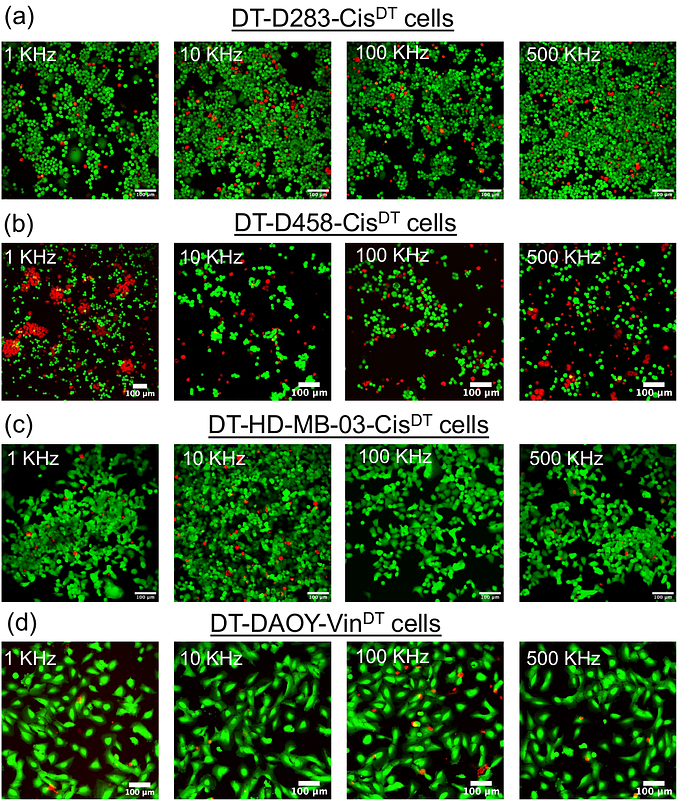Tackling Anticancer Drug Resistance and Endosomal Escape in Aggressive Brain Tumors Using Bioelectronics

Tackling Anticancer Drug Resistance and Endosomal Escape in Aggressive Brain Tumors Using Bioelectronics
Jain, A.; Wade, P.; Stolnik, S.; Hume, A. H.; Kerr, I. D.; Coyle, B.; Rawson, F.
AbstractChemotherapy resistance and endosomal entrapment, controlled by intracellular trafficking processes, is a major factor in treatment failure. Here, we test the hypothesis that external electrical stimulus can be used to modulate intracellular trafficking of chemotherapeutic drugs in most common malignant brain tumors in childhood (medulloblastoma) and gold nanoparticles (GNPs) in adulthood (glioblastoma). We demonstrate that application of alternating current (AC) with frequencies ranging from KHz-MHz and low strength (1V/cm) lead to killing of cisplatin and vincristine resistant (mediated by extracellular vesicles) medulloblastoma cell lines. On the other hand, in primary glioblastoma cells, high frequency AC (MHz) regulated the endosomal escape of GNPs. No significant effect on the viability of the control medulloblastoma cells (resistant cells cultured in drug free media and non-resistant cells) and glioblastoma cells after AC treatment confirmed targeting of intracellular trafficking process. This work supports future application of AC in drug delivery and brain cancer therapy.


